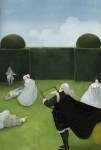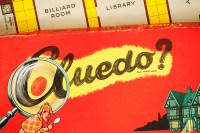How terror triumphed at the Christmas market









All the latest analysis of the day's news

An intelligent mix of culture, food, style and property, plus where to go and what to see.





Back in the early 1990s, I was a teenage visitor to an array of dilapidated Victorian cow sheds masquerading as third and fourth division football grounds as I supported my team, Wrexham FC, on their travels. There were still many pre-Hillsborough fences in place, some of which (most notably in the away end at Crewe


This week's magazine
The Queen · Peter Thiel · Nigel Farage · Andrew Strauss · Matthew McConaughey · Ben Shapiro … and more
Peter Thiel has been described variously as ‘America’s leading public intellectual’, the ‘architect of Silicon Valley’s contemporary ethos’ or as an ‘incoherent and alarmingly super-nationalistic’ malevolent force. The PayPal and Palantir founder, a prominent early supporter of Donald Trump, is one of the world’s richest and most influential men. Throughout his career, his principal concern
Peter Thiel has been described variously as ‘America’s leading public intellectual’, the ‘architect of Silicon Valley’s contemporary ethos’ or as an ‘incoherent and alarmingly super-nationalistic’ malevolent force. The PayPal and Palantir founder, a prominent early supporter of Donald Trump, is one of the world’s richest and most influential men. Throughout his career, his principal concern
The good, the bad and the ugly in books, exhibitions, cinema, TV, dance, music, podcasts and theatre.
‘On BBC 2 last Monday,’ noted the Sunday Telegraph’s TV critic Trevor Grove in February 1979, ‘the return of Fawlty Towers was immediately followed by a programme about faulty towers.’ He went on: This was odd, but on close examination turned out to be without significance. After all, what connection could there possibly be between







